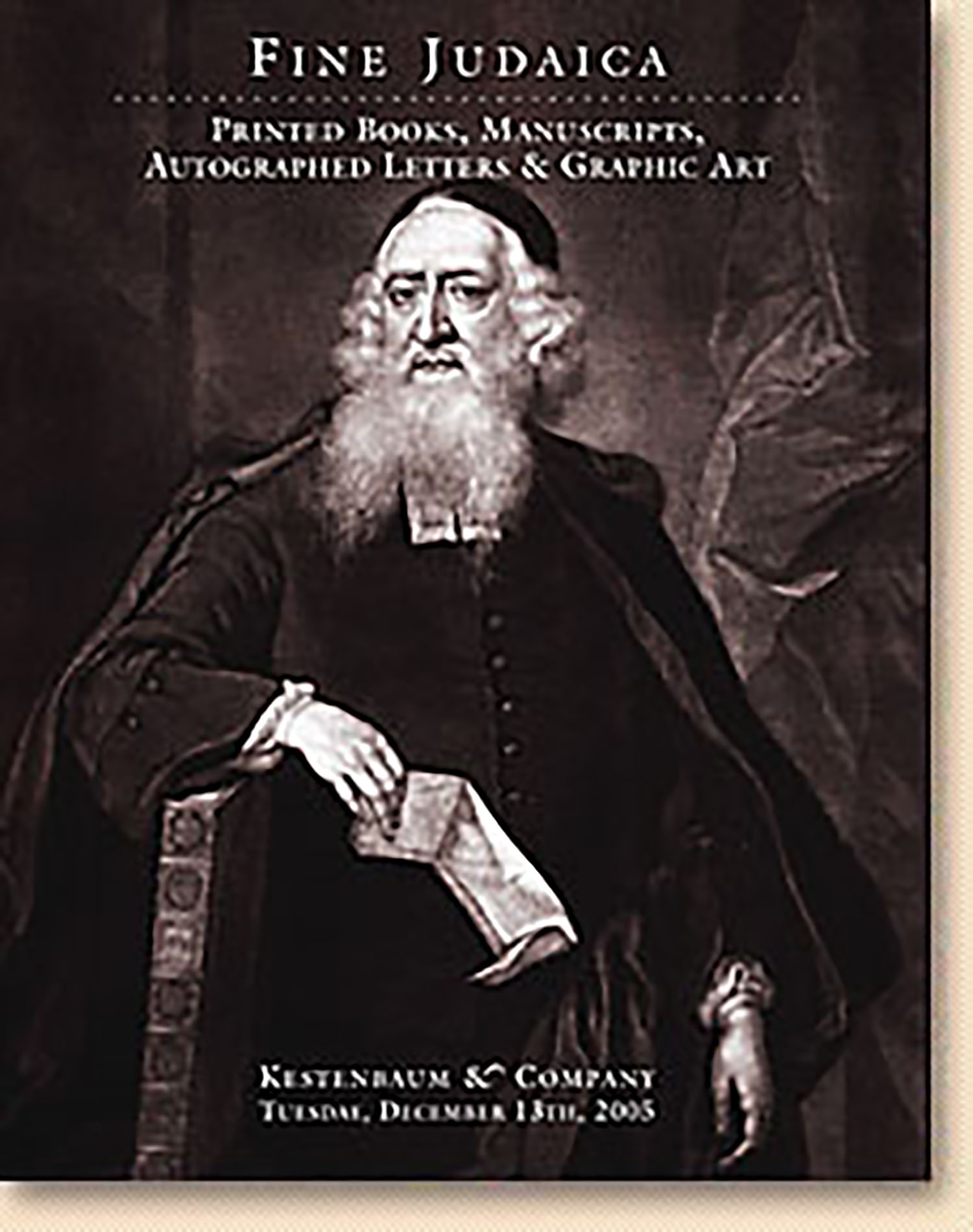VITAL, CHAIM. Arba Me’oth Shekel Keseph [“Four Hundred Shekels of Silver”]

AUCTION 31 |
Tuesday, December 13th,
2005 at 1:00
Fine Judaica: Hebrew and Other Printed Books
Lot 205
(KABBALAH).
VITAL, CHAIM. Arba Me’oth Shekel Keseph [“Four Hundred Shekels of Silver”]
Koretz: Abraham b. Isaac and Elijah b. Jacob 1804
Est: $300 - $500
PRICE REALIZED $450
Work of Lurianic Kabbalah that focuses upon the philosophical problem of Free Will versus Predestination. Though not one of the so-called Shemonah She’arim of R. Chaim Vital, there is no doubt that Arba Me’oth Shekel Keseph is one of the many tomes Vital penned based on the teachings of his master R. Isaac Luria. The book is full of glosses by the authoritative editors and interpreters of Lurianic tradition: R. Chaim Vital, R. Jacob Zemach, R. Nathan Spira (acronym “Ha-Nasi”), and R. Moses Zacuto (Rama”z).
As Tauber in his monograph, “Dephusei Koretz,” has pointed out, each city in Eastern Europe undertook a distinctive character as to the genre of literature published on its presses. Thus, Sudylkov produced responsa literature and Talmudic novellae; Slavuta, Talmud and codes; while Shklov was unique in that it produced scientific works as well as traditional Judaica. Koretz emerged in time as the center for production of works of Kabbalah. Tauber attributes this phenomenon to the personalities of the rabbis and sages of the various locales. (See Tauber, Mechkarim Bibliographi’im (1932), p. 17).
While many of the works printed in Koretz contain chassidic endorsements of disciples of R. Dov Baer, the Maggid of Mezritch, surprisingly, the present work bears the haskamah of R. Chaim of Volozhin, spiritual heir to Elijah, the Gaon of Vilna
